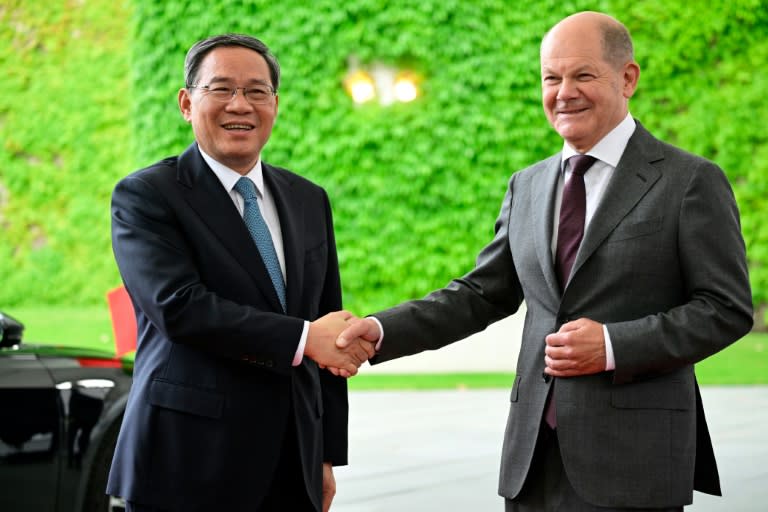Chinese and German leaders engage in delicate discussions and negotiations.

Chancellor Olaf Scholz of Germany held talks with Premier Li Qiang of China on Tuesday, aiming to redefine the cooperation between the two countries following Germany’s characterization of China as a “systemic rival.” This visit marks Premier Li’s first trip abroad since assuming office in March with the task of reviving China’s post-COVID economy.
In contrast to previous visits by Chinese dignitaries, where Germany eagerly welcomed them and sought to expand business ties, Premier Li’s visit comes at a time when Germany is actively seeking to diversify its trading partners. Having experienced the drawbacks of relying heavily on Russian gas and facing supply chain disruptions during the pandemic, Germany is intensifying efforts to reduce the risk associated with its dependence on China.
During his meeting with German President Frank-Walter Steinmeier on Monday, Premier Li expressed China’s readiness to work with Germany to promote global stability and prosperity. However, their discussions will be influenced by Germany’s recently published national security strategy, which accused China of acting against German interests, exerting pressure on international security, and disregarding human rights.
China has objected to being labelled as a “partner, competitor,” and “systemic rival,” warning that such labels would only lead to division and confrontation in the world. China has faced criticism for stirring regional instability through threats against Taiwan and allegations of human rights abuses against the Uyghur population while maintaining a close relationship with Russia’s Vladimir Putin.
Furthermore, Germany’s intelligence agency, in its latest report, identified China as the greatest threat concerning economic and scientific espionage and foreign direct investments in Germany.
While German Foreign Minister Annalena Baerbock has advocated for enhancing cooperation with China in areas of mutual agreement, such as climate issues, critics of China’s human rights policies, including Baerbock, believe that reducing dependence on China is crucial. NATO chief Jens Stoltenberg has urged Germany to learn from the lessons of Russian aggression, cautioning against solely making commercial decisions and experiencing the consequences later.
Overall, Germany is reassessing its relationship with China, emphasising the need to mitigate risks and broaden its economic partnerships while simultaneously addressing concerns about human rights and security implications.
